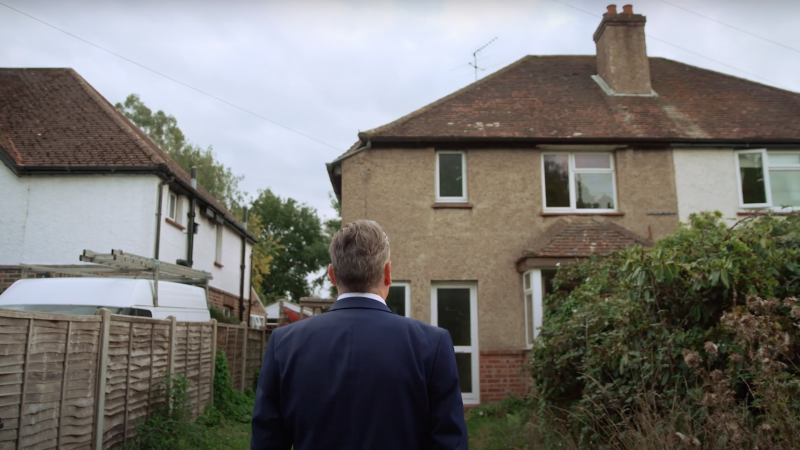
There are many in the Labour Party who are concerned that Keir Starmer has yet to articulate any sense of what he sees as the future of democratic socialism under his leadership. Instead, he has limited himself to close forensic questioning of Boris Johnson and generally highlighting the Conservative government’s shambolic and incompetent mismanagement of the pandemic. Starmer would no doubt argue that now is not the time for big policy statements because there is no appetite for new political ideas given everyone’s preoccupation with the pandemic.
There is some force to the Labour leader’s argument. But you also can’t help but get the sense that Starmer does not actually have the capability or desire to articulate radical democratic socialist ideas. Whatever the case may be for not presenting a vision of what democratic socialism is, and how it could transform the quality of life for working people in Britain, there is one exception that does present itself precisely due to Covid-19. That is the failure of Downing Street to properly involve local government in the management and control of the virus when it has a proven ability to do so, and instead give powers to unaccountable private companies such as Serco, who have no such expertise.
Starmer was interviewed by HuffPost UK this week and, as usual, spoke in measured language and exuded common sense. He made several practical points, especially concerning the lack of ongoing involvement in Covid-19 decision-making of local leaders, who have both legitimacy and detailed knowledge of their communities and, therefore, can speak authoritatively. The Labour leader also commented on the government’s failure to provide tailored financial support to communities in local lockdown. The interview offers an excellent short critique of the government’s Covid-19 mismanagement, but its weakness is that it is purely reactive and has no thematic context.
I may not be a scientist, but I do understand the difference between a linear progression and a geometric progression and the paramount importance of prompt testing and tracing in controlling Covid-19. Local government authorities have access to their own electoral and school databases and have personnel who speak foreign languages, meaning they could better reach out to the minority ethnic communities especially susceptible to the virus. Thanks to all of this, they are much better equipped to act promptly than Serco. But under the current system, they are only involved when Serco fails, which may be days later and too late.
Labour spokespersons will make this point, but they do not make it in a wider context, which they should. And really, to gain maximum attention with the electorate, this bigger vision should come from the top – from Starmer himself. That vision is the devolution of power and responsibility to local government, together with electoral reform to make local authorities more democratically accountable for their increased powers and responsibilities.
This is the major theme of grassroots or bottom-up democratic socialism as distinct from top-down socialism on the Attlee model. It was understandable that Clement Attlee’s government should adopt the approach it did because he and Ernest Bevin had served in the wartime coalition government, where state control – the command economy – was necessary to win the war. Of course, the achievements of Attlee’s government were considerable, but it did not change or challenge the institutions or constitution of the state. Modern Britain is a fundamentally changed place, with a more educated populace, which could properly and effectively handle more devolved powers.
Many Labour activists and other progressives recognise that Britain is over-centralised – more so than many other modern states – and that power should be devolved to local authorities. Specifically, local government needs to be given greater discretionary powers to act, with a progressive local tax base, including a reformed council tax based on a percentage of up-to-date capital values of domestic properties and greater borrowing powers for spending.
But the necessary complement to devolved power is greater democratic accountability. Specifically, local government elections, alongside general elections, should be done under proportional representation. That would break-up party strongholds, both Labour and Conservative, and encourage and empower communities, making local government more open to ideas and less complacent than when they are bound to first-past-the-post.
Many progressives would argue that Britain is not only over-centralised but also far too secretive. This secrecy is inimical to democratic accountability, so the idea of democratic devolution and accountability can be linked to the need for greater transparency at all levels of public life. For example, the Freedom of Information Act does not apply to the City of London nor to the monarchy. And yet, it should, because in a proper democratic society nobody should be above the law. Labour should therefore back the extension of the act.
In the context of Covid-19, this is an idea that can be articulated by Labour now. A wider vision can come later, but this limited thematic approach would put down an important marker that Labour is in the business of seriously empowering and engaging working people to control and improve their own lives. It could also create the scope for an integrated and holistic vision of democratic socialism that could form the basis of a winning election campaign and even the radical transformative programme of a future Labour government.




More from LabourList
SPONSORED: ‘Industrial hemp and the challenge of turning Labour’s priorities into practice’
‘A day is a long time in politics, so we need ‘action this day’’
Strong support for child social media ban among Labour members, poll reveals